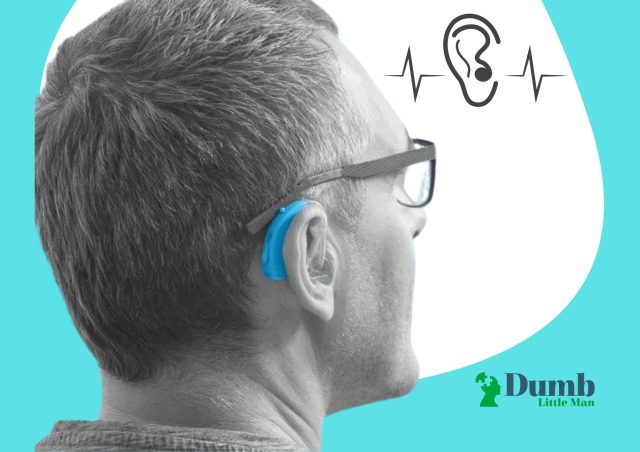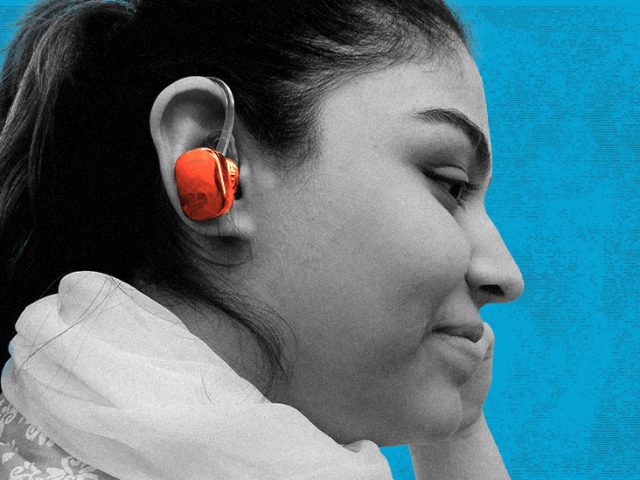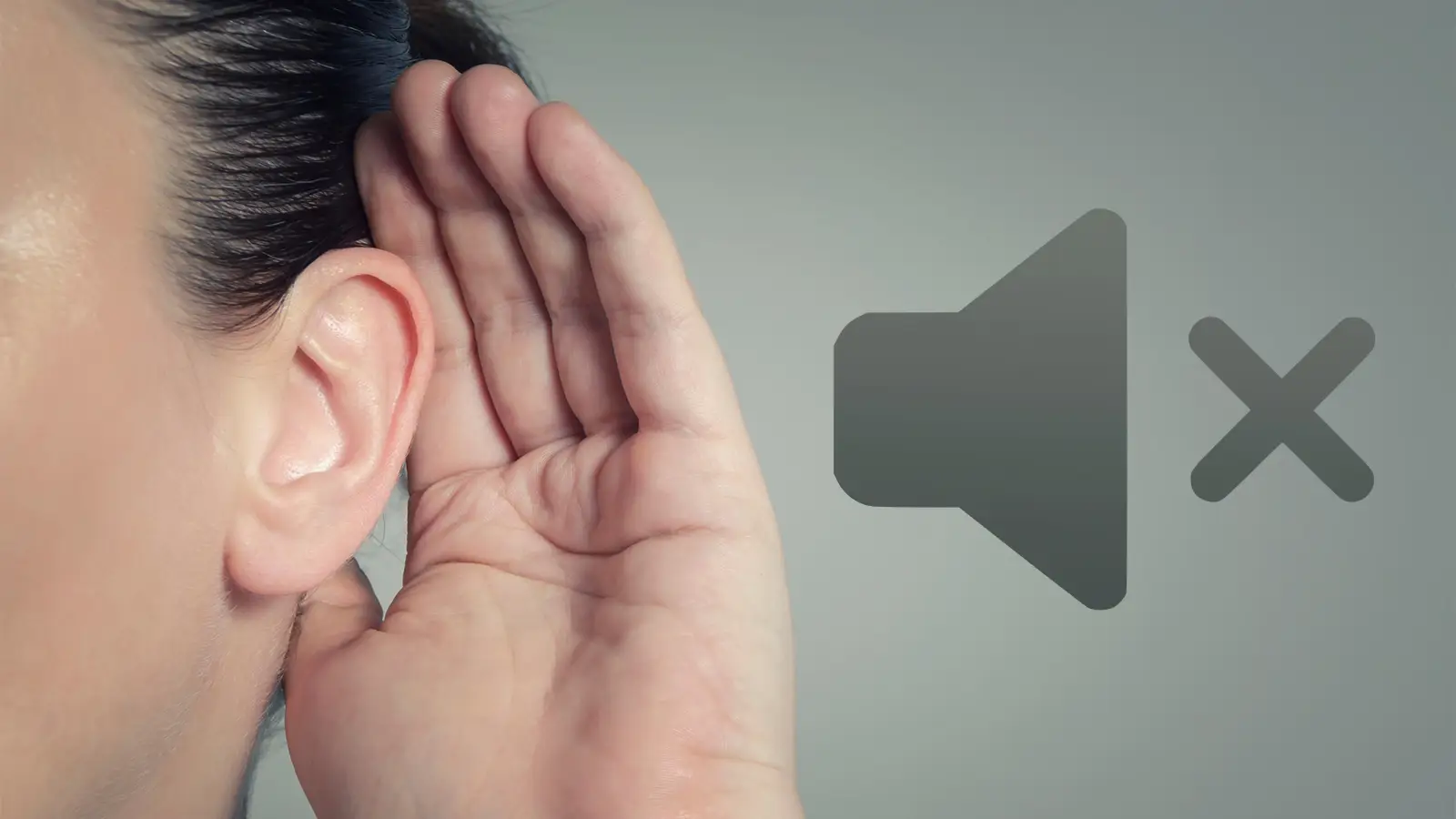Hearing Loss 101: Everything You Need to Know
By Dumb Little Man
January 10, 2024

Hearing loss is a medical condition affecting a person's ears and hearing ability. Patients often hear muffled sounds and find it difficult to converse and communicate. Age is a crucial factor that can cause hearing to deteriorate. While some people may develop hearing loss with age, others may be born with defects known as congenital hearing loss.
Hearing loss is preventable to a certain extent. Treatments and hearing implants like those offered by HearCanada can prevent further damage and even improve hearing. If you or a loved one are going through something similar, you are at the right place. This guide will look at everything there is to know about hearing loss, treatment, and prevention. Let's get straight to it!

What Is Hearing Loss?
Hearing loss refers to the inability to hear properly or pinpoint differences between noises. This could be due to several underlying conditions, which we will cover later.
- Patients find it difficult to communicate due to the inability to hear conversations properly
- Keeping track of noises or sounds on a TV or phone may get irritating and unpleasant
- Daily life becomes a struggle as the brain works harder to focus and allow things to make sense
Is Hearing Loss Common?
- Nearly 13% of people in the U.S. over 12 years have hearing loss in both ears
- 2% of people aged between 45 and 54, 8.5% between 55 and 64, and 25% between 65 and 75 have hearing disabilities
- Three out of every 1,000 children in the U.S. are born with ear defects affecting one or both ears.
- Hearing loss is the most common sensory disorder that affects brain functioning and the ability to taste, touch, see and hear
Who Is Most Likely to Be Affected By Hearing Loss?
Hearing loss can affect people of any age, race, gender, or region. Older adults are far more prone to losing their hearing than other age groups. People over the age of 45 are often at high risk. The age-determined hearing condition is known as presbycusis.
Hearing defects can also present themselves in babies and children. Every two in 1000 newborns are born with some kind of ear defect. A hearing defect in an infant is known as congenital hearing loss.
Hearing Loss Types

Loss of hearing can occur in one or both ears. Hearing loss in one ear is referred to as unilateral loss, while the one in both is called bilateral loss. The defect within the hearing system and the damage extent ultimately decide whether one or both ears are affected. There are three main types of hearing loss:
Conductive Hearing Loss
Conductive hearing loss occurs when sounds are blocked from reaching the outer ear canal or middle ear canal. The three bones in the middle ear canal, the malleolus, incus, and stapes, could be affected in this condition.
Blockage occurs due to excessive earwax buildup, ear infections, or fluid retention. The most common symptoms include the inability to hear loud noises as they sound muffled. Even soft sounds may be difficult to hear. Treatment includes surgery or certain medications.
Sensorineural Hearing Loss
This type of hearing loss occurs when the auditory nerve or cochlea (inner ear) gets damaged. Certain ailments, aging, and loud noises may be major causes. Even infants are prone to congenital hearing loss if they experience head trauma during birth, infections, head injuries, or other congenital disabilities. Sensorineural loss is usually permanent and cannot be reversed. Hearing aids and other assistive devices may help some patients.
Mixed Hearing Loss
Patients experiencing both sensorineural and conductive loss symptoms have mixed hearing loss. Infections, head trauma, genetics, and other conditions lead to this type of loss. Treatment depends on the patient and often combines the one given in sensorineural and conductive hearing loss.
Is There a Difference Between Deafness and Hearing Loss?
People with hearing loss cannot hear properly but can still communicate by seeking help and treatment. Hearing aids, surgery, and medications may improve their condition and allow them to lead normal lives. However, people that are deaf lose almost all of their ability to hear or cannot hear at all. They use sign language to converse and cannot make out sounds at all.
Hearing Loss Causes
Exposure to loud noises in the long-term often leads to hearing loss. Loud music, gun blasts, and other loud noises can damage the ear canal or drum. Occupational hearing loss may affect professionals like farmers, military soldiers, musicians, and construction workers. Some other factors that lead to hearing issues include:
- Genetics
- Acoustic neuroma
- Cancer medication
- Tumors
- Strokes
- Cytomegalovirus or CMV
- Heart disease
- High blood pressure
- Chemical exposure
- Head trauma
- Accidents or severe injuries
- Diabetes
- Ear infections
- Earwax buildup
- Eardrum rupture
Hearing Loss Symptoms
Hearing loss can occur gradually and slowly. This may even lead some patients to not realize that they are in the process of losing their hearing. This is often because most people experience no painful symptoms. Symptoms that can help you deduce whether someone is experiencing hearing issues include:
- Failure to track, follow and respond to conversations
- Constantly asking people to repeat
- Ear pain
- Fluid pressure inside the ear
- Difficulty balancing
- Dizziness
- Cannot hear soft sounds or mumbling
- Cannot hear loud or high-pitched noises like birds chirping
- The radio or TV volume is often cranked up
- Ringing in the ears or tinnitus
Some common signs of hearing problems in children include:
- Delayed speech
- Not responding to their name
- Not turning towards the sound
- Not being startled by loud noises
Who Treats Hearing Loss?
Hearing Aid Specialists
Hearing aid specialists obtain a state license after passing state exams. They are trained to conduct hearing tests so they can pick the right hearing aids for their patients.
Audiologist
Audiologists have a doctorate in audiology. They are not medical doctors and are not qualified to prescribe medication. Audiologists conduct various hearing assessments and tests depending on each patient. This helps them determine the right hearing devices/aids required. They are also responsible for determining whether additional hearing loss tech is required, such as osseointegrated or cochlear implants.
Otolaryngologist
Otolaryngologists are medical doctors often referred to as ENT (ear, nose, and throat) specialists. They are qualified to perform ear surgeries and can prescribe treatment. Audiologists often work alongside ENT to provide patients with better coverage for hearing problems.
How Is Hearing Loss Diagnosed?
- The doctor finds out about ear pain sites and symptoms
- They check for possible ear infections or tissue damage
- An audiogram tests what types of sounds the patient can hear
- Configuration determines how well the patient can hear low-pitched and high-pitched sounds
- Degree measures hearing loss condition to determine whether it is regular, slight, or extreme
- CT scans and MRIs may be performed to diagnose head injury, trauma, and tumors
Hearing Loss Treatment
The type and extent of hearing loss often determine treatment:
Assistive Devices
Assistive devices are often used to help patients improve their hearing. A hearing aid may be worn outside or inside the ear canal to help amplify sound signals. Cochlear impacts may be surgically impacted in case of damage to the inner ear or cochlea.
Hearing Devices
Hearing devices help patients listen to high-pitched and low-pitched noises better. They can watch TV, talk on the phone and listen to music better.
Rehabilitation
Audiologic rehabilitation helps patients adjust to using hearing aids and the complications of hearing loss. A therapist teaches patients visual cues and lip reading to help them communicate better.
Medicine
Ear infections that lead to hearing troubles are treated using antibiotics. Corticosteroids help relieve ear canal swelling and damage to cochlear hair cells. A doctor may also ask a patient to switch medication for certain ailments if a particular drug is causing hearing loss.
Surgery
Some patients may require surgery for implant placement. Surgery may also be needed to place ear tubes inside the eardrum to treat middle ear problems. Tumors and certain congenital disabilities may also require the patient to undergo surgery.
Endnote
Hearing loss can surely be prevented. Limiting exposure to loud noises, keeping your ears clean, and catching symptoms before they worsen, can help prevent further complications. If you or a loved one is facing any ear troubles, it is a wise move to seek medical help immediately.
Dumb Little Man
At Dumb Little Man, we strive to provide quality content with accuracy for our readers. We bring you the most up-to-date news and our articles are fact-checked before publishing.

